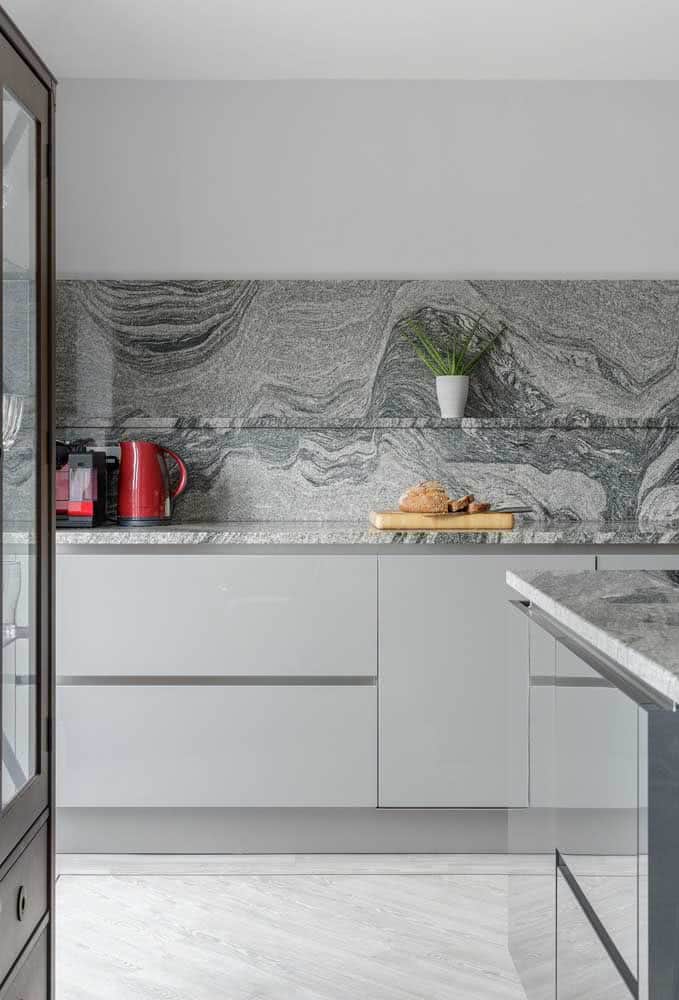Thinking about countertops is practically the same thing as thinking about granite. After all, this is the most popular combination of all. But is it the best? Which granite to choose? It’s the price? Despite the popularity, the choice of granite countertops still raises many doubts.
That is why in today’s post we will help you by clarifying several doubts and still inspire you with jaw-dropping projects. Let’s check?


Granite is a type of natural stone formed basically by crystals of quartz, mica, and feldspar. This composition guarantees granite the strength and durability that everyone knows. To recognize a granite stone it is simple: just check if the surface has small granulations, similar to specks. The presence of veins, however, is characteristic of marble.
But what other differentials does granite have concerning other materials commonly used in countertops? One of the main differences is durability, strength, and maintenance.
When compared to marble, for example, in addition to its distinctive appearance, granite is also much more durable. This is because it has a higher degree of hardness, that is, it does not scratch as easily. If the comparison material is wood, the main difference is in maintenance. Granite practically does not require maintenance, while wood needs frequent repairs in order not to deteriorate, especially in the case of countertops that always suffer from the presence of moisture.
Synthetic stones, in turn, such as Silestone and Marmoglass can compete on equal terms with granite in terms of strength and durability, however, they lose badly when it comes to price. That’s because synthetic stones can cost up to three times more than granite.
Check out the granite countertop ideas to inspire your project now:
1.
2.
3.
4.
5.
6.
7.
8.
9.
This website uses cookies.